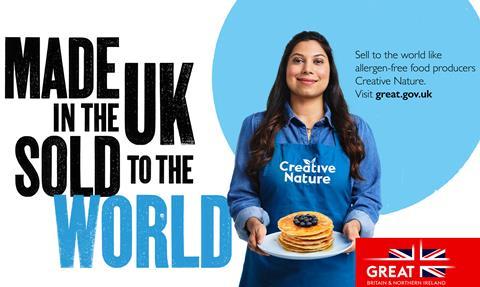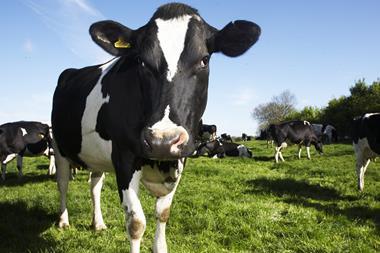
The government this week said it would put food and drink at the heart of its year-old campaign to boost Britain’s exports.
In what it labelled “a new phase” for its ‘Made in the UK, Sold to the World’ exporting drive, the Department for International Trade said 12 of the 45 businesses featuring in a new radio and billboard ad drive would be from the food and drink sector.
The aim, the department said, was to encourage exporting by showcasing small and medium-sized enterprises that have seen their overseas sales grow.
The success stories, said exports minister Marcus Fish, could push “more businesses” to “take advantage of the potential they could achieve if they get onto the exporting ladder”.
Among the businesses featured in the revamped campaign is Devon-based ice cream and sorbet maker Granny Gothards, which exports to the Persian Gulf and Singapore.
Director Amanda Stansfield lauded the department’s “expertise” which she said contributed to “making it easier” for Granny Gothards to access such far-flung markets.
Julianne Ponan, director of Creative Nature, which sells allergen-free snacks and baking mixes to 16 countries, including the US and Switzerland, said the department’s work was “invaluable” in ensuring she was “meeting the right people, attending the best tradeshows and getting our products on shelves globally”.
The Made in the UK, Sold to the World initiative was announced 11 months ago by the Boris Johnson-led government. Labelled a “12 point plan”, it aims to double Britain’s overseas goods sales by the end of the decade by “unlocking export potential” after the UK’s post-Brexit deal with the EU saw food exporters facing border checks on goods bound for the bloc.
“We changed our exporting strategy after Brexit, we moved toward Australia, Singapore, the US”, said Ponan, adding that the recent slump in the value of the pound against the dollar would have “positive and negative” effects on the UK’s food industry.
”It’s more favourable for us who export to the US but it could be a challenge for anyone importing raw materials”, she said.
“We predominantly export to Dubai, Singapore, Kuwait, UAE with many more on the horizon rather than the EU”, said Susie Hodgkin, business development manager at Granny Gothards.
Joelle Drummond, marketing director at Drop Bear Beer, a Welsh brewer featuring in the DIT ad campaign, said the post-Brexit transition led to “nervousness” last year.
”Due to the additional hurdles and our limited resources we did for a time rein in our EU exports, however, these are picking back up and partnering with larger exporters who take care of much of the paperwork is a huge help, we just need to make sure we tick all the boxes our end on the label”, she said.
The renewed emphasis on what Fish said was the UK’s “world-class food and drink” could be seen as an attempt by the Liz Truss-led administration to distance itself from its predecessor. Boris Johnson’s government was accused of sidelining beef and lamb farmers in its post-Brexit free trade agreements with Australia and New Zealand, though the FTAs were welcomed by other food and drink sectors, including dairy and wine.
The DIT announcement came after new trade minister Kemi Badenoch was urged in a letter sent last week by environmental and agrarian organisations, including the NFU, to “embed the principle of a level playing field” in trade deal negotiations with India. The Australia agreement, the signatories said, would see British farmers competing against food imports “produced to standards that would be illegal in the UK”.


















